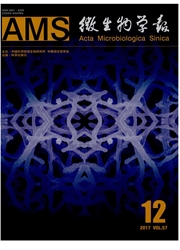

 中文摘要:
中文摘要:
炎症小体(Inflammasome)是细胞质中多种蛋白组装成的复合物,炎症小体的激活能活化半胱天冬酶-1(caspase-1),进而引起系列促炎细胞因子的成熟与分泌和诱导细胞焦亡。当病原体感染时,炎症小体的激活在宿主天然免疫应答中起重要作用。大量研究表明,多数情况下炎症小体对宿主起保护作用,仅少数情况下保护作用不明显或表现出有利于病原体生存的一面。在长期进化中,病原体也发展出逃避宿主炎症小体作用的策略。病原体可直接抑制炎症小体的激活或减弱炎症小体的作用。本文从病原体感染宿主中炎症小体的作用及病原体对宿主炎性症小体的逃避机制两方面对二者相互作用的最新研究进展进行综述。
 英文摘要:
英文摘要:
Inflammasomes are multi-protein complexes located inflammasomes induce maturation and secretion of series in the cytosol and activate caspase-1. Subsequently, of pro-inflammatory cytokines and pyroptosis. Inflammasome activation plays a critical role in host innate immune responses against infectious pathogens. Inflammasomes can protect host against most pathogens. However, the protection role of inflammasome seems sometimes less obvious, or it shows detrimental to the host and facilitates the pathogens. Pathogens evolved evasion strategies against inflammasomes under selective pressure, and could weaken or inactivate the functions of inflammasomes. In this review, we summarize the progress in research on the active role of inflammasomes in host immune response against pathogens and the inflammasome-evasion strategies of pathogens.
 同期刊论文项目
同期刊论文项目
 同项目期刊论文
同项目期刊论文
 期刊信息
期刊信息
